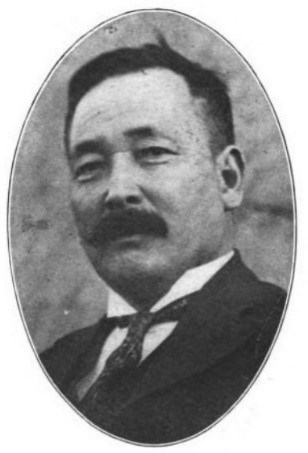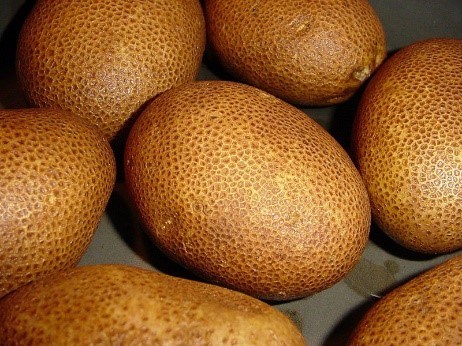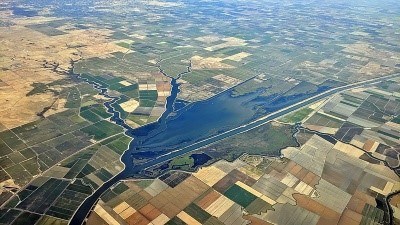Last updated: January 31, 2020
Article
Remembering the Potato King

Wikimedia Commons Photo
One of our newest National Heritage Areas, the Sacramento-San Joaquin Delta National Heritage Area, is so well known for its fertile ground that it has been nicknamed “California’s cornucopia.” The legendary status of these agricultural lands has long attracted farmers from around the world. One of those farmers, born in Japan, came to the Delta to find work and eventually built and lost a business empire fueled by potatoes.
George Shima, born Ushijima Kinji in Kurume, Japan in 1864, wanted to attend university in Japan and become a scholar of Chinese classics. After failing the English language section of the entrance exam, he realized he would have to change directions.
Because the United States government had passed the Chinese Exclusion Act in 1882, there were suddenly more openings for immigrants from other countries to find work in the US. Ushijima Kinji moved to America in 1889, changed his name to George Shima, and worked first as a domestic servant in San Francisco and then as a farm laborer in the Sacramento Delta. Shima developed a reputation as a hard worker and was eventually able to buy some land in the San Joaquin Delta.
The marshy lands he bought were cheap, and considered inappropriate for farming, due to the regular flooding of the area by the Sacramento River. The active farmers in that region shunned the peaty, mosquito-filled lands that Shima had purchased, and his first attempts at crops, concentrating on beans and rice, were unsuccessful. It wasn’t until he switched to potatoes that he realized his true calling. Once he began to harvest many successful plantings of beautiful spuds, he was able to purchase more of the land that others had thought was useless. Between 1889 and 1913, Shima would expand his farm to more than 28,000 acres.

Wikimedia Commons Photo
By 1909, Shima’s farm produced more potatoes than any other in the world, and a newspaper article named him the “Potato King.” He expanded his business enterprises when he and a friend financed the construction of the luxurious Stockton Hotel in Stockton, CA. His grand yearly parties for bankers, merchants and journalists, and his ability to lead a comfortable, lavish lifestyle, contributed to his high profile, and he eventually became the first Japanese American millionaire.

Wikimedia Commons Photo
The mission of the Sacramento-San Joaquin Delta NHA is to protect and enhance the unique cultural, recreational, natural and agricultural resources of the Delta as a living landscape. Though Shima passed away in 1926, the Sacramento-San Joaquin Delta remembers him for his economic and agricultural contributions to their area, and his important place in American history. Today, San Joaquin Delta College in Stockton remembers this remarkable individual with the Shima Center, where students can study agriculture, and other subjects.
Discover more news and stories from America's National Heritage Areas.
